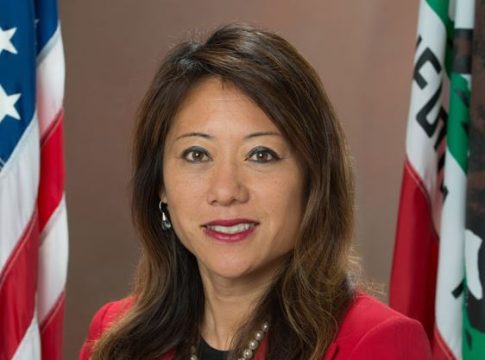Photo by Nancy Hung
By Lisa K Son
The recent attacks on Asian Americans are disturbing, but nothing new. Even before the pandemic, Asian Americans were routinely assaulted, spat upon, and told to “go back home,” but seldom chose to report these incidents. The pandemic has simply made visible what had been largely invisible, though skepticism remains as to whether these truly qualify as racially motivated attacks.
If we in the Asian community want to reduce our exposure to hate crimes, we must overcome our tendency to remain silent. We must let the world know what we were experiencing long before COVID-19 began making headlines.
As a researcher who studies the self-reflective process of metacognition and someone of Asian descent, it’s clear to me that underreporting of racially motivated attacks on Asian Americans happens, at least in part, because the victims are caught between American individualism and Asian collectivism. Too often, the Asian self prevails and the victim fails to report the crime for the “good” of the group.
LATEST STORIES
Metacognition, which develops in childhood, refers to our ability to understand and reflect on our own thought processes. It has also been identified as a form of “privileged access,” where my own thoughts are private, known only to me. Asian Americans tend to embrace this privacy. But why? For many immigrants, assimilation is a life-long goal. Given differences in our appearances, habits, and speech, our strategy for successful assimilation has been anonymity. We even refuse to let our facial expressions betray our emotions. A high school teacher once announced that my nickname would be “poker face.” At the time, this didn’t feel like an insult; I took pride in the accomplishment of bluffing, and thus assimilating.
In America, people want access to others’ personal stories, including their challenges and hardships. Intimate details about people’s lives, including their private thoughts, are commodified in published memoirs. When I was writing my book on metacognition (in Korean), I was told, “Don’t get personal!” When I (cautiously) posted on social media about my issues with the former administration, I heard the inevitable, “Be careful.” And, now, as I write this piece, I put myself at risk of hearing what I fear most: “Sit this one out.” But I can’t sit this out anymore. I, too, have seen the videos of the attacks, and it hits too close to home. The faces of the victims are our parents, our grandparents, and our elders. The victims are those who have sacrificed their own culture to help us find acceptance into the American culture. We need to speak up.
But it’s still not easy. Like most Asians, I am embarrassingly comfortable behind a mask. In February of 2020, “anonymous me” stuck out like a sore thumb as I got on the train after work. I was the only Asian in sight, and the only person wearing a mask. A few weeks later, even after discussions of mask-wearing had begun, I was the only masked individual in my local, very crowded, Shop-Rite. At the check-out, I told the person behind me to please move back a little. She refused and scowled at me. I spoke to no one about this, but have not set foot inside a supermarket since.
The pandemic has made the particularities of Asian American culture more salient. While anonymity was once our superpower, it’s now our curse. As the earliest and most consistent maskers, we become outsiders, foreigners, and carriers of deadly diseases like the “Kung Flu virus.” At the same time, skepticism about our condition is on the rise. Stereotypically, we seem not to suffer in the classroom or in the economy. We tend not to complain, so attacks on us can’t really be that serious, can they?
What remains unseen is easily believed not to exist, and while we cling to our anonymity the abuse remains invisible. We cannot address anti-Asian violence in America until we first “see” that it exists. This means opening up collectively about our individual experiences with racism. But it also means understanding and battling the racism faced by others in our society, including racism that comes from within our community. It means finding ways in which to increase our nation’s cultural intelligence. From a metacognitive perspective, I want us to find ways to balance our Asian and American identities, which starts with trusting ourselves. I will begin with myself. As I don my mask and reflect, I pledge to make myself more visible in the fight against hate.
About the Author: Lisa Son is a Korean American psychology professor at Barnard College of Columbia University.
AsAmNews has Asian America in its heart. We’re an all-volunteer effort of dedicated staff and interns. Check out our new Instagram account. Go to our Twitter feed and Facebook page for more content. Please consider interning, joining our staff, or making a financial contribution to support us.









